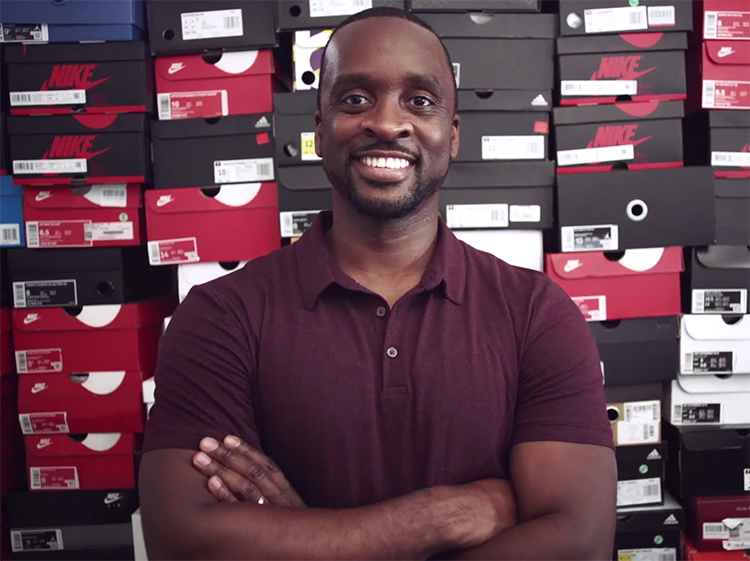
Lawyer earns ‘double salary’ with eBay business stemming from his ‘shopping gene’
Careers
Lawyer earns ‘double salary’ with eBay business stemming from his ‘shopping gene’
A lawyer with “the shopping gene” has turned his love for bargains into a business on eBay that made $120,000 in sales in the year ending in September, according to a story by Business Insider.
Yinka Ogunsunlade’s first experience with eBay was as a buyer, snapping up football and basketball jerseys that were “all the rage” in the early 2000s, he tells Business Insider. His first sale occurred when he was home for the holidays during law school and sold an unwanted present his mother received—a perfume set.
“I sold that item fairly quickly, and thought: If I can sell something I know nothing about, I’m sure I can sell items that I know a lot about,” he tells the publication.
He began selling items from his own closet and then started searching for bargain clothing in stores that he could buy and resell. He tells Business Insider he loves to shop, having received “the shopping gene from my mom.” In law school, he focused on items from Neiman Marcus Last Call and Saks OFF 5th.
At first, he took photos of items with price tags and went home to learn how much similar items were selling for on eBay. Then he would buy the items with the best potential for profit. Now he can do the price check in the store with the eBay app.
He made enough money in law school to pay his cellphone bill. Now, Business Insider reports, he has a six-figure reselling business he calls Fashionably Legal. His best-selling categories are athletic shoes and apparel.
The extra income provides a “double salary,” he says. “It just changes your mental makeup—knowing that you don’t have to rely specifically on a 9-to-5 job that could end tomorrow,” he tells Business Insider.
Write a letter to the editor, share a story tip or update, or report an error.



